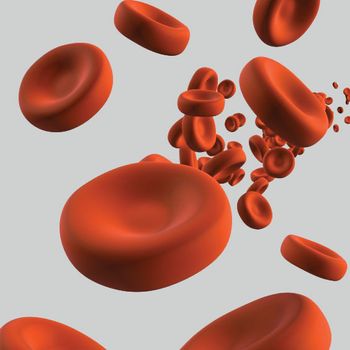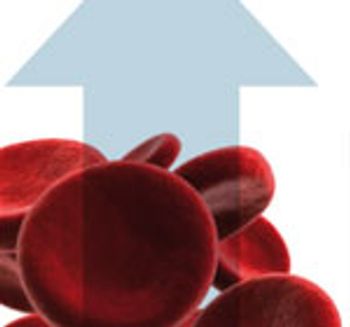Articles by Lauren M. Green

"Women with peripheral neuropathy reported significantly lower physical functioning, significantly more difficulty with tasks of daily living, and nearly twice as many of the women with neuropathy experienced a fall in the last year," says Kerri Winters-Stone.

"We now finally have evidence that bone-targeted treatment is not only successful in treating bony metastases and preventing treatment-induced bone loss," said Michael Gnant.

Immunotherapies continue to be studied and approved across multiple tumor types, among them, malignancies of the central nervous system.

It was a night filled with inspiration, shared purpose and hope, as four heroes who have given selflessly in their efforts to improve the lives of people impacted by glioblastoma were honored at the 1st Annual Glioblastoma Multiforme (GBM) Heroes Awards.

In a recent survey, 48 percent of insured patients with cancer indicated that they never wanted to discuss the topic of out-of-pocket treatment costs.

While the prognosis remains good for individuals with HPV-positive oropharyngeal cancers, researchers are currently seeking less intense treatment options that are equally effective but not as toxic.

Ruben A. Mesa addressed the current treatment landscape for PV last week at the 33rd Annual Chemotherapy Foundation Symposium, a meeting of over 1,000 physicians and other oncology professionals.

Women who performed 150 minutes of treadmill exercise per week and those who exercised twice that amount showed estrogen-sensitive breast tissue reductions of 8 percent and 12 percent, respectively.

The group Facing Our Risk of Hereditary Cancer Empowered (FORCE) is spreading the word to patients, survivors, and their families about a network that's collecting real-world information from people affected directly or indirectly by hereditary cancer risk.

An analysis of data collected on thousands of ovarian cancer patients in California turned up some promising news for women with this diagnosis.

Embarking on the genetic testing process can be a toss-up for patients who have cancer or face an elevated risk of developing the disease.

Oncology clinicians and practices need to do a better job of engaging patients more fully in their care planning and make patient-reported outcomes an integral part of cancer treatment research.

Often facing greater disease-related risk, younger women with breast cancer are asked to weigh fertility, sexual health and body image issues within a short window of time – in many cases, without as much guidance as they would like.

According to professional practice guidelines, women with ovarian cancer should get doses of chemotherapy that are based on their weight. When they receive less than that, a new study has found, the result can be poorer survival.

Cancer survivors who hope to adopt children may face some extra obstacles, but a history of cancer isn't necessarily a dealbreaker, especially when an adoption takes place within the United States.

A single intravenous dose of EMEND for Injection was shown to be superior to placebo when either were combined with other anti-vomiting agents for protection against CINV in patients receiving moderately emetogenic chemotherapy.

The American Society of Clinical Oncology is testing what will happen if patients are treated according to the genomics of their tumors, rather than on the basis of their disease types, such as breast or colorectal cancers.

Removing lymph nodes in the neck before they are affected by oral squamous cell cancer is a life-saving measure and should be adopted as a new standard in treating the disease, according to the results of a phase 3 study.

Patients with relapsed indolent non-Hodgkin lymphoma who took the anti-CD20 agent Gazyva with Treanda, rather than Treanda alone, doubled their time until further disease progression during the phase 3 GADOLIN study.

The immunotherapy Keytruda (pembrolizumab), in a recent study, proved twice as effective for the treatment of head and neck cancer as Erbitux (cetuximab), the only targeted therapy indicated as a therapy for the disease.

In a new study, weight training was shown to help stave off deterioration of physical function in breast cancer survivors, conferring a benefit twice that of women in a control group.

Early action to diagnose and treat lymphedema after breast cancer treatment can reverse this side effect or prevent it from becoming more severe.

For those with a history of non-melanoma skin cancer (NMSC), reducing their risk of recurrence can be as simple as taking the vitamin B3 pill nicotinamide.

A navigator-designed, proactive, weekly, telephone support call to help patients with blood cancers manage their symptoms between appointments was able to significantly reduce unplanned hospitalizations at a Colorado cancer center.

The treatment landscape for advanced pancreatic cancer has expanded in recent years, but it continues to be a very complex and devastating disease.

For survivors of colorectal cancer, struggles can include negative body image, persistent gastrointestinal problems and sexual dysfunction—issues that can diminish quality of life and jeopardize relationships.

Jean M. Weigert, head of breast imaging for the Hospital of Central Connecticut, discusses results of a study examining supplemental ultrasound screening in women with dense breast tissue.

Patients with newly diagnosed metastatic colorectal cancer who had higher levels of vitamin D in their blood lived a median eight months longer and experienced greater disease-free survival after their cancer treatment.

Patients with newly diagnosed metastatic colorectal cancer (mCRC) who had higher levels of vitamin D in their blood lived a median of eight months longer and experienced greater disease-free survival after their cancer treatment, according to research reported at the 2015 Gastrointestinal Cancers Symposium.

Findings from a long-term analysis of the Women's Intervention Nutrition Study (WINS) show that the deaths of women with hormone receptor–negative breast cancers were reduced by up to 54 percent when they followed a program to reduce their dietary fat intake, which could provide benefit for patients with triple-negative breast cancer.



























